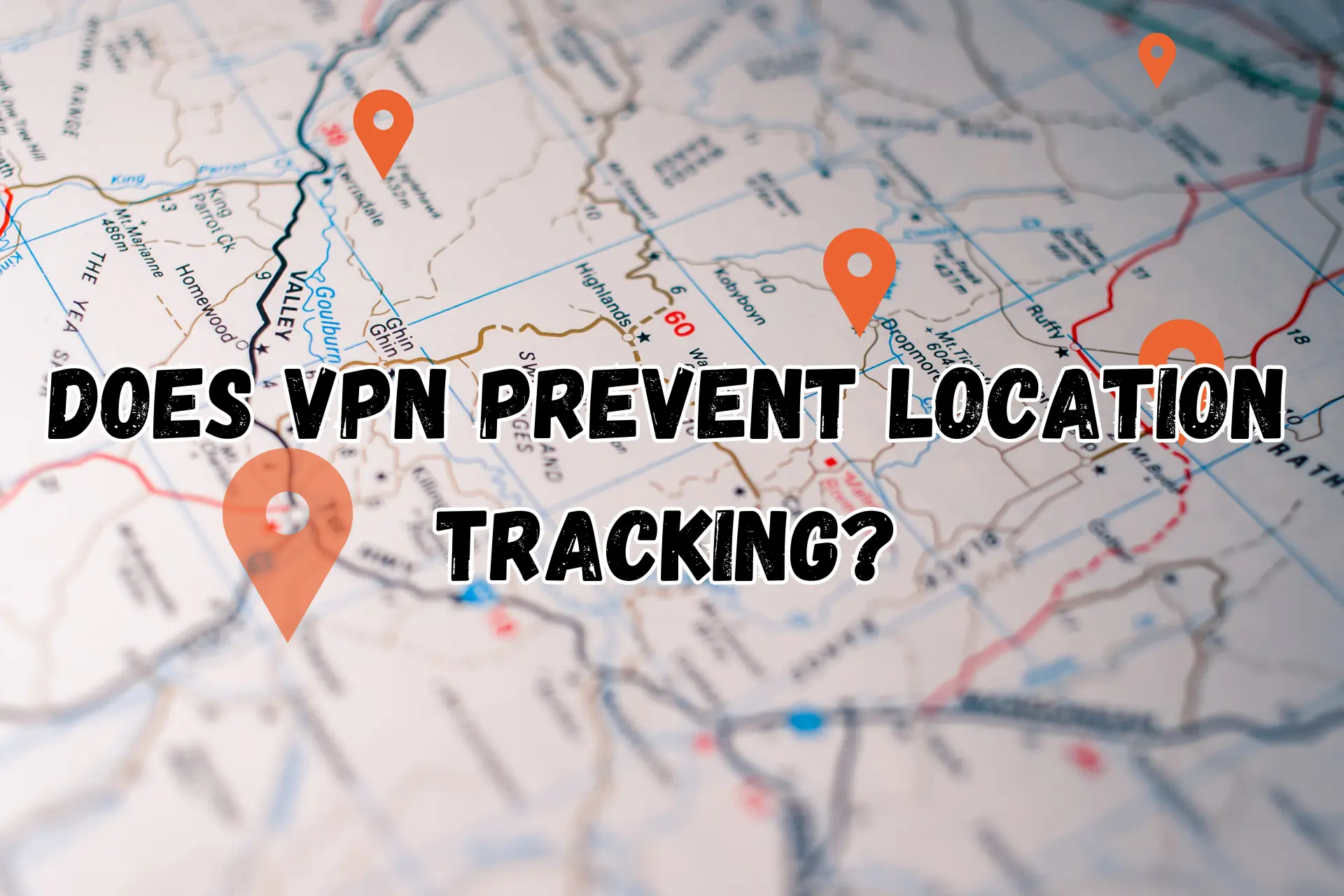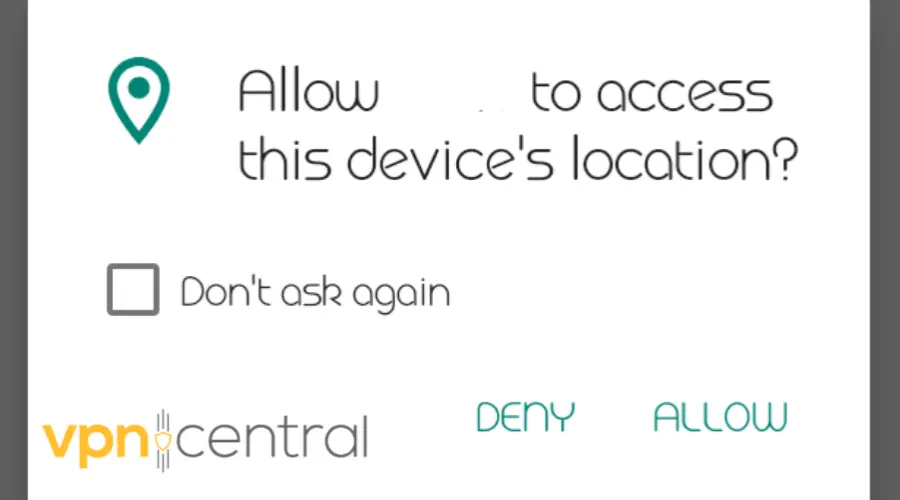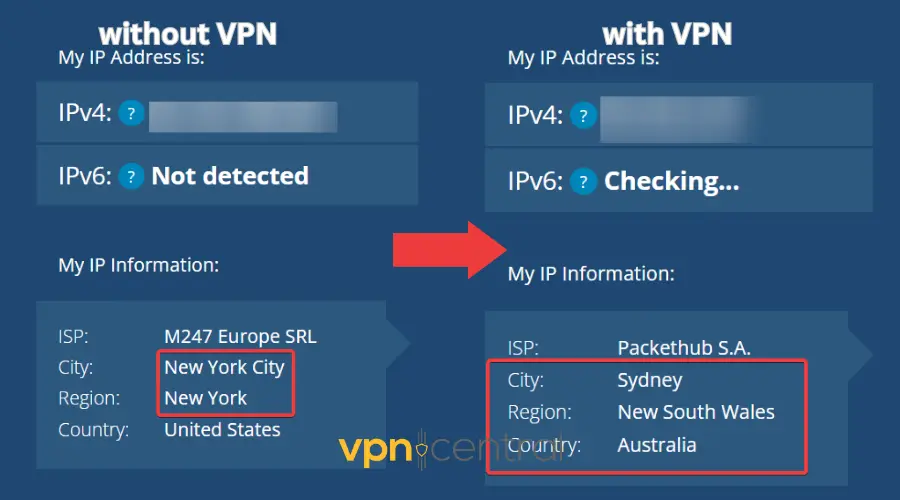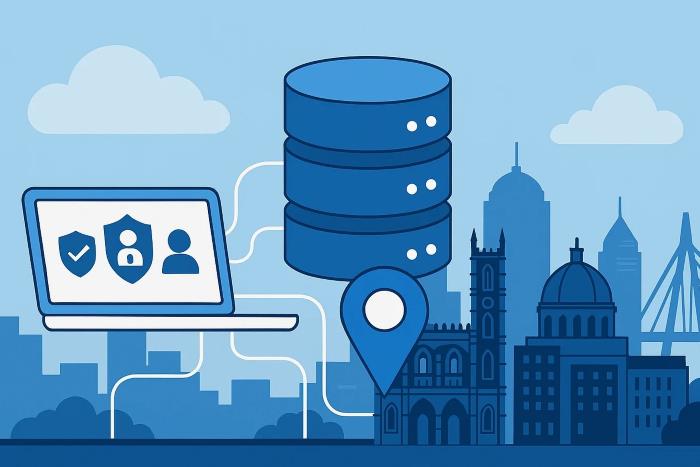Does VPN Prevent Location Tracking? [All You Need To Know]
7 min. read
Updated on
Read our disclosure page to find out how can you help VPNCentral sustain the editorial team Read more

Lots of apps and online services use location tracking, allegedly to improve user experience. This practice does however raise privacy and security concerns.
VPNs are generally advertised as privacy products that will help you change your apparent region. But is it true? Does a VPN really prevent location tracking?
Well, there’s more than just one way to find out a device’s location, so it depends. Read on to learn how location racking occurs and to what extent a VPN can stop it.
? How does location tracking work?
Location tracking can occur through various methods and technologies, including GPS (Global Positioning System), WiFi, and Bluetooth.
Your phone is the most commonly tracked device. It is at one end, and the extractors are at the other.
The entities that track location can be many and serve various purposes: legal authorities, internet service providers, advertisers, location-based applications, and more.
By analyzing your location history over time, patterns and routines may reveal information about your daily life, such as your commute and the places you visit for leisure or business purposes.
For example, if your device or service provider logs your location at a particular office building during regular business hours, it may infer that you work there.
Let’s take each location tracking entity and see how they track your location.
? Sites and apps
Numerous apps and sites will ask you to grant access to your location whenever you use their services. They may occasionally have a reasonable purpose such as to display the local weather.

Sometimes it doesn’t, as they might sell your location information to data collectors.
They track location using Software Development Kits, also known as “SDKs,” which are pieces of code that data collectors write.
Depending on the specific SDK and its installed device, these codes use various methods.
For example, some use inertial sensors in a device, such as an accelerometer and gyroscope, to track its movement and estimate its location.
Therefore, app creators get these codes so they learn more about their user base, know how to improve their apps, and who to advertise to.
Several apps contain a single SDK, giving data collectors access to location information on thousands or millions of people.
Additionally, most SDKs require the user’s consent to access location data, and users can typically control the level of access granted.
?️ Institutions
Governments and law enforcement organizations use various techniques to trace a device’s location.
1. GPS tracking
One method is GPS tracking, which uses satellite-based navigation systems to ascertain a device’s exact location.
Several smartphones have GPS systems that institutions may use to locate the device.
In most countries, Government agencies can access GPS information through court orders or warrants, subpoenas, direct device access, or cooperation with service providers.
2. IP address
Also, government agencies can use an IP address to track your general location.
When you connect to the internet, your device gets an IP address from your ISP. It’s unique to your device and includes information about your region.
3. Cell tower triangulation
Another way authorities can track a phone’s location is by using cell tower triangulation which police officers use during investigations.
This method works by measuring the signal strength from multiple cell towers and using that information to determine the phone’s position.
4. WiFi triangulation
Another method is WiFi triangulation, which determines a device’s position by examining the signal strength of adjacent WiFi access points.
5. Location tracking gadgets
Law enforcement authorities may also deploy equipment known as Stingrays, IMSI catchers, or cell-site simulators to capture mobile phone signals.
These gadgets fool nearby phones into connecting to them by imitating a mobile phone tower, thereby gathering the phone’s location and other information by stingrays.
❗ It’s vital to remember that applying these techniques may give rise to moral and legal issues, such as privacy issues.
Government agencies don’t randomly or generally track location. They only do that when there is an ongoing investigation.
Moreover, several nations have laws restricting specific monitoring techniques or calling for warrants before using them.
Does a VPN hide your location?
Yes, a VPN can hide your physical location by masking your IP address.
It can help hide your location from others by encrypting your internet traffic and routing it through a remote server.
When you connect to a VPN server, all your internet traffic is routed through an encrypted tunnel. This prevents anyone from intercepting or monitoring your online activities.
This means that even if someone intercepts your internet traffic, they won’t be able to see your IP address or track your location.
For example, if you reside in New York City, you can use a VPN to connect to a server in Sydney, Australia.

If you then search for your IP, you’ll see that the location information will be from Sydney and not New York.
Using a VPN to hide your location can help safeguard your online privacy and security. Trackers won’t get any consistent information about your actual whereabouts.
Does a VPN prevent location tracking?
Yes, using a VPN can prevent location tracking to some extent.
By masking your IP address and encrypting your internet traffic, a VPN can make it challenging for third parties to track your physical location.
Therefore, sites, applications, and even authorities that attempt to track you, won’t be able to get your real location information based on your IP.
VPNs can’t stop all location tracking
That being said, a VPN can’t do anything about GPS tracking, cell tower triangulation, and WiFi tower triangulation. These methods gather data from different sources, not your IP address.
Moreover, some websites and online services also use other methods to track your location, such as through your browser settings or by analyzing your search history.
However, if you are monitored with more than one of these methods, including IP address, sending off conflicting information can give trackers a hard time figuring out where you actually are.
Additionally, it’s worth noting that you have to use a strong VPN to prevent location leaks. The most common risks for exposing your real location are DNS and WebRTC leaks.
A DNS leak occurs when a device’s DNS requests bypass the VPN tunnel, revealing the user’s actual IP address to the DNS server.
Also, a WebRTC leak can occur when your device communicates directly with a website or application you’re using rather than through the VPN tunnel.
Summary
Using a VPN is an excellent way to safeguard your online privacy and security, and it can indeed make it more challenging for third parties to track your physical location.
Nevertheless, it’s vital to understand that a VPN is not a foolproof solution for location tracking.
IP address leaks, GPS data, browser fingerprinting, and browser cookies are all potential weaknesses that can compromise a user’s anonymity.
However, if you are genuinely concerned about your privacy, you can take additional steps to secure yourself.
Such as disabling location services on your devices and using browser extensions that block location tracking.
Therefore, if you are proactive about your online security, you can ensure that your personal information remains private and secure.
FAQ
Yes. VPNs only mask IP-based location information. They can’t change your GPS data or other methods used to track location.
No, a VPN cannot hide your GPS location.
A VPN only encrypts your internet traffic and masks your IP address, which can help protect your online privacy and security, but it does not affect your physical GPS location.
The GPS receiver determines your GPS location in your device, which relies on satellite signals to determine your precise location.
Your use of a VPN or any other software does not affect this information.
A VPN may not be able to prevent all forms of tracking on your phone.
For example, if you have enabled location services on your phone, apps, and services may still be able to track your physical location using GPS or other location data.
Similarly, if spyware or other malicious software has successfully compromised your phone, a VPN may not be able to prevent your phone from being tracked.









User forum
0 messages